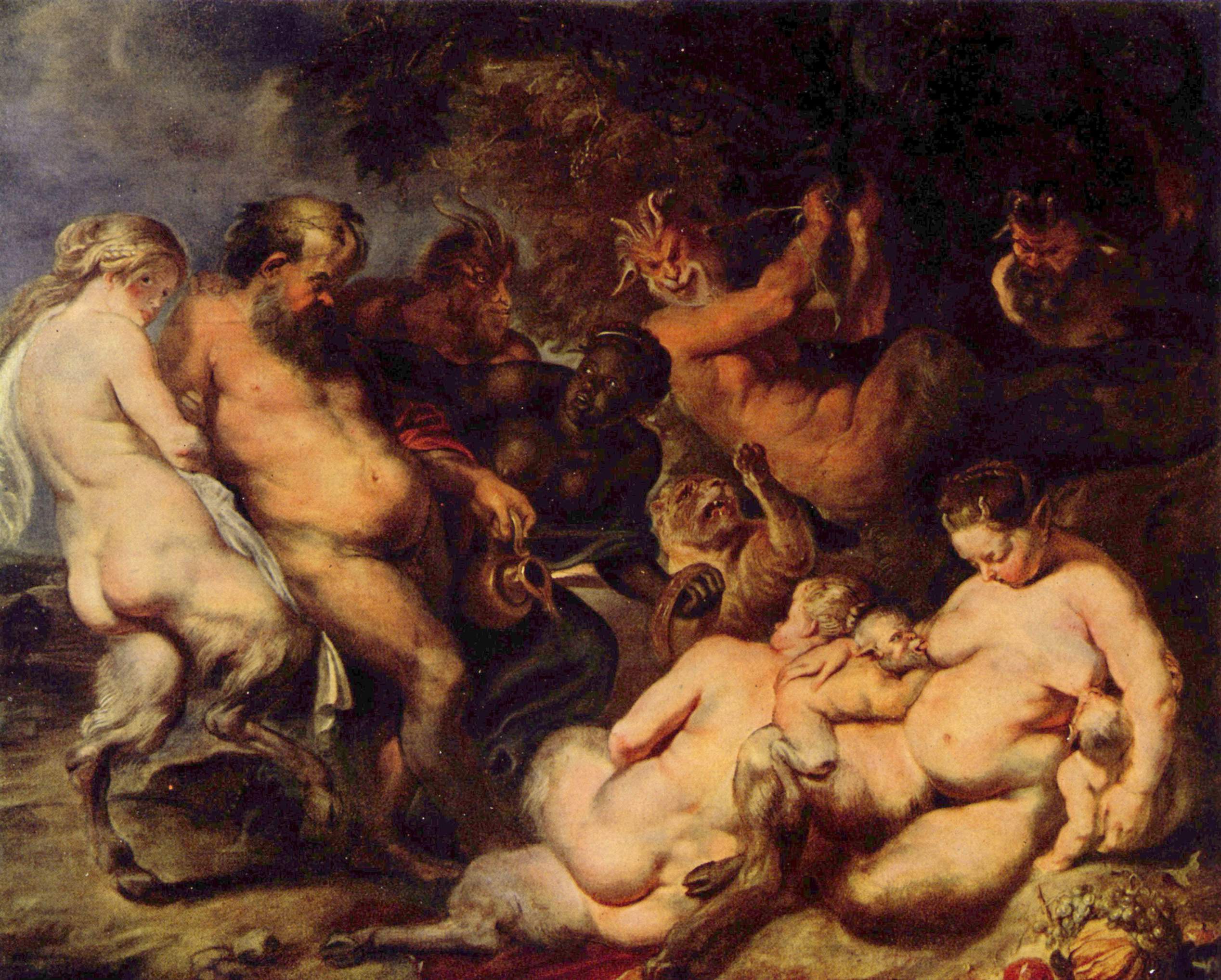- Bacchanalia
Infobox Holiday
holiday_name = Bacchanalia
type = Pagan
longtype = Pagan, Historical
caption = "The Bacchanal" byPeter Paul Rubens
observedby = Romans
date =
celebrations =
observances =
relatedto = The bacchanalia were wild and mystic festivals of the Roman and Greek god Bacchus.History
Introduced into
Rome from lowerItaly by way ofEtruria (c. 200 BC), the bacchanalia were originally held in secret and only attended by women. The festivals occurred in the grove ofSimila near theAventine Hill on March 16 and March 17. Later, admission to the rites was extended to men, and celebrations took place five times a month. According toLivy , the extension happened in an era when the leader of the Bacchus cult wasPaculla Annia —though it is now believed that some men had participated before that.Livy informs us that the rapid spread of the cult, which he claims indulged in all kinds of crimes and political conspiracies at its nocturnal meetings, led in 186 BC to a decree of the Senate—the so-called "Senatus consultum de Bacchanalibus", inscribed on a bronze tablet discovered in
Apulia in Southern Italy (1640] , now at theKunsthistorisches Museum inVienna —by which the Bacchanalia were prohibited throughout all Italy except in certain special cases which must be approved specifically by the Senate. In spite of the severe punishment inflicted on those found in violation of this decree (Livy claims there were more executions than imprisonment), the Bacchanalia survived in Southern Italy long past the repression.Modern scholars hold Livy's account in doubt and believe that the Senate acted against the Bacchants for one or more of three reasons. First, because women occupied leadership positions in the cult (contrary to the current patriarchical Roman values). Second, because slaves and the poor were the cult's members and were planning to overthrow the Roman government. Or third, according to a theory proposed by
Erich Gruen , as a display of the Senate's supreme power to the Italian allies as well as competitors within the Roman political system, such as individual victorious generals whose popularity made them a threat to the Senate's collective authority.Modern usage
The term "bacchanalia" has since been extended to refer to any drunken revelry. In "
A Tale of Two Cities ",Charles Dickens uses the phrase "the law was certainly not behind any other learned profession in its Bacchanalian propensities."ee also
*
Maenad - female worshippers of Dionysus
*Dionysus - another name for Bacchus in Greek
*Thriambus - a hymn sung in processions in honour of Dionysus
*Dionysian Mysteries
*Roman Senate - political body responsible for suppressing the BacchanaliaReferences
*1911
*Euripides , "Bacchae ", aGreek tragedy , gives some insight as to what was involved in a Bacchanalian rite.
* "Bacchanales. Actes des colloques Dionysos de Montpellier (1996-1998)". Textes réunis par [http://recherche.univ-montp3.fr/cercam/article.php3?id_article=385 Pierre Sauzeau] . Montpellier: Publications de l'Université Paul Valéry, 2000, 300 pp. (ISBN 2-84269-382-5); [http://recherche.univ-montp3.fr/cercam/rubrique.php3?id_rubrique=69 "Cahiers du GITA"] nº 13 (ISSN 0295-9900).External links
* [http://www.thelatinlibrary.com/scbaccanalibus.html "Senatus consultum de Bacchanalibus" in Latin] at
The Latin Library
* [http://www.forumromanum.org/literature/sc_bacchanalibusx.html "Senatus Consultum de Bacchaniabus" in English and Latin] at forumromanum.org
* [http://www.fordham.edu/halsall/ancient/romrelig2.html Description of the Bacchanalia and the Senate's ruling] from Fordham
Wikimedia Foundation. 2010.
